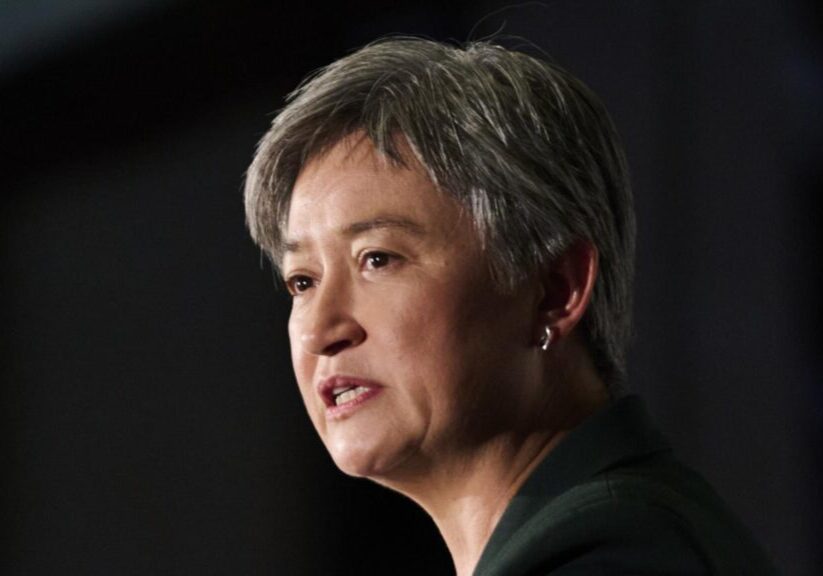IN THE MEDIA
Why terminology matters in pursuit of a peace deal
Jun 24, 2014 | Or Avi Guy
Or Avi-Guy
Canberra Times
June 24, 2014
There has been much discussion about the federal government’s clarification of the terminology it intends to use in regards to east Jerusalem – and the strong reaction to it from local Arab diplomats and Palestinian representatives, threatening trade boycotts or other sanctions.
In William Maley’s article “Diving into quicksand: George Brandis and the Jerusalem question” (Times2, June 18, p5) he suggests that Brandis blundered when he said at a Senate Estimates hearing that, “The description of east Jerusalem as ‘occupied east Jerusalem’ is a term freighted with pejorative implications, which is neither appropriate nor useful.”
However, the Australian government is simply encouraging using neutral language for a territory now the subject of negotiations.There are many other disputed territories in the world – Kashmir, northern Cyprus, the islands in the South China Sea, to name a few. They are all routinely described as “disputed” by governments and media alike, not “occupied”.
Avoiding pejorative language acknowledges that competing narratives of the past exist and avoids taking sides so that those different descriptions can be resolved the only way they possibly can be – by direct negotiations between the two sides.
While the term “occupation,” in its popular use, is often applied in reference to Israel’s military control over parts of the West Bank, there is an ongoing debate over the legal applicability of the term “occupation”, since under the terms of treaties such as the Fourth Geneva Convention and the 1907 Hague regulations, this term generally referred to a sovereign country controlling the land of another sovereign country.
Eastern Jerusalem was occupied by Jordan before Israel gained control of the territory in a war of self-defence in June 1967, following Jordan’s attack on the second day of the war. But Jordan’s previous control of the area was never widely recognised – and, more importantly, Jordan renounced its claim to the area in 1988. So it is not “occupied” Jordanian territory. Nor, legally, can it be occupied “Palestinian territory”, because international legal conventions recognise only sovereignty by states and the Palestinians have never had a state.
Since the 1967 war, which saw Israel gain control of the West Bank, Gaza Strip, the Golan Heights and the Sinai Desert as well as eastern Jerusalem, Israel has since sought to negotiate “land for peace” based on UN Security Council Resolution 242, and has signed peace treaties with Egypt and Jordan.
Since the 1993 Oslo Accords, Israel has been attempting to achieve a negotiated peace settlement ending the conflict with the Palestinians with the establishment of a Palestinian state in the West Bank and Gaza Strip.
Under Israeli Prime Ministers Ehud Barak (2000-01) and Ehud Olmert (2008) Israel offered a Palestinian state on nearly all of the West Bank, Gaza Strip and the Arab neighbourhoods of east Jerusalem. Land swaps were offered to compensate for the areas Israel proposed to keep.
The Palestinian leadership walked away from these offers.
Legal disputes aside, everyone knows that any final status deal will almost certainly see the border adjusted to account for demographic changes both in eastern Jerusalem and the West Bank. This idea is clearly suggested by the original text of Resolution 242, which refers to the “Withdrawal of Israel armed forces from territories occupied in the recent conflict,” not “all territories”, or even “the territories”.
Diplomats involved in drafting the resolution have confirmed this specific language was included with the intent of allowing for negotiations to create a mutually acceptable border different from the 1949 armistice lines – which were never legally recognised as a formal border. Even the Arab League endorsed the notion of land swaps in May 2013.
It seems particularly obvious that a peace treaty will not and should not see a return to the pre-1967 status quo in Jerusalem. When Jerusalem was under Jordanian control following the 1948 Arab-Israeli war, the substantial Jewish population which had lived in the Old City for thousands of years was expelled, the synagogues were destroyed and all Jews denied access to their holy sites including the Western Wall, the holiest place of worship in the Jewish religion. The city had a fortified wall, mounted with machine guns, through the middle of its downtown area.
But use of the term “occupation” amounts to an implied assertion that legality dictates the situation should return exactly to the status quo of May 1967 – and thus makes the compromises needed to make a peace deal work harder by essentially endorsing inflexibility.
The Palestinians and their allies like to insist everyone call the territory occupied because it implies that it is all already rightfully theirs and they should not have to compromise or agree to a final peace with Israel to get it “back”.
But this attitude is one of the greatest barriers to a two-state deal, and arguably an important reason for the Palestinian refusal to respond positively to three reasonable Israeli peace offers in 2000, 2001 and 2008.
Therefore, it is sensible for the Australian government to use neutral terminology – referring simply to “east Jerusalem” and the “West Bank”, and not go out of its way to express an opinion on its legal status.
Or Avi-Guy is a policy analyst at Australia/Israel and Jewish Affairs Council and a PhD candidate at the University of Melbourne, researching post-ethnic conflict political reconciliation.
This story was found at: http://www.canberratimes.com.au/comment/why-terminology-matters-in-pursuit-of-a-peace-deal-20140624-zsio4.html
Tags: Australasia











